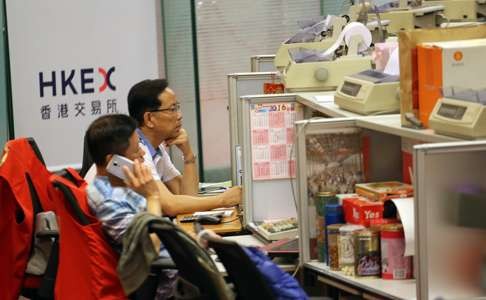
Hong Kong bourse walks a fine line on new market for start-ups despite huge risks
New board should be for professional, rather than retail investors due to high failure risks

The Hong Kong Exchanges and Clearing’s plan to have a new market for start-ups from the mainland and other regions looks fine on paper, but is workable only if all the stakeholders make the right moves.
The first and foremost criteria for the success of such a market is to ensure that the listing regulations protect the interests of retail investors, its main target audience. And the onus for this rests with the market regulator - the Securities and Futures Commission.
If the new board is one that targets institutional investors such as funds, insurance companies or pension funds, or professional investors with investable funds of HK$8 million and investment experience of two years, it would be prudent to have lower entry barriers.
That the bourse is indeed veering towards such an option was evident last Thursday when HKEX chief executive Charles Li Xiaojia said it would explore all options, including a new board with lower entry requirements to attract more technology firms to list in Hong Kong.
It is obvious that the HKEX is slowly waking up to the competition at its doorsteps. Last week, the Singapore bourse decided to allow dual-class share structures to encourage more listings in the city state.

Dual shareholding structure was one of the reasons why many Chinese tech firms opted for overseas listings, rather than Hong Kong. Companies like Baidu, Weibo and Alibaba, which owns the South China Morning Post, chose to list their shares in the US bourses, where such a system is prevalent.
Part of the reason why tech firms chose bourses which allow dual listings lies in the financing pattern. In most cases, the founders of the company just have an idea for which they get external financing support. As a result, the founders hold only minority stakes in the company.
When the company becomes bigger and eventually goes public, the founders are keen to retain control and hence opt for the dual share structure to consolidate their holdings. Little wonder out of the 30 tech firms listed in the US bourses, 29 have dual share structures.
By allowing dual shares, Singapore has put more pressure on the Hong Kong bourse. In the city, tech firms account for just 7 per cent of the total market capitalisation and the majority is mostly financial and property companies.
But the Hong Kong bourse’s hands seem to be tied in this matter as the dual share system has been opposed by many funds. It would therefore be hard for it to amend the existing main board or Growth Enterprise Market (GEM) rules. But if there is a new market, such a special shareholding structure could easily be considered.
The real attraction for a new third board in Hong Kong, is its ability to attract not just Hong Kong but also mainland start-ups.
So to make the new market a success, the HKEX has to learn from its GEM mistakes. The GEM was set up in 1999 to attract listings from start-ups. Though it does not require companies to be profitable prior to listing, it has still not made much headway as it requires firms to have a cash flow of HK$20 million, which is too high for many start-ups.
The new market would thus need to have really low entry requirements. China’s new third board, also known as the National Equities Exchange and Quotations, has very light requirements for professional investors and has attracted listings from about 8,900 companies.
But it should be noted that about 2,200 startups listed on China’s third board posted losses during the first six months of the year, indicating the high risks. In fact, many studies have shown that start-ups have a failure rate of as high as 90 per cent and hence should not be traded in a market for retail investors, most of whom who are retirees or housewives.
The need of the hour is a market for professional investors or for those who are well aware of the involved risks. Hong Kong does not have class action litigation measures and if investors want to sue a company, it could prove to be an expensive proposition, something that only the professional investors can do.